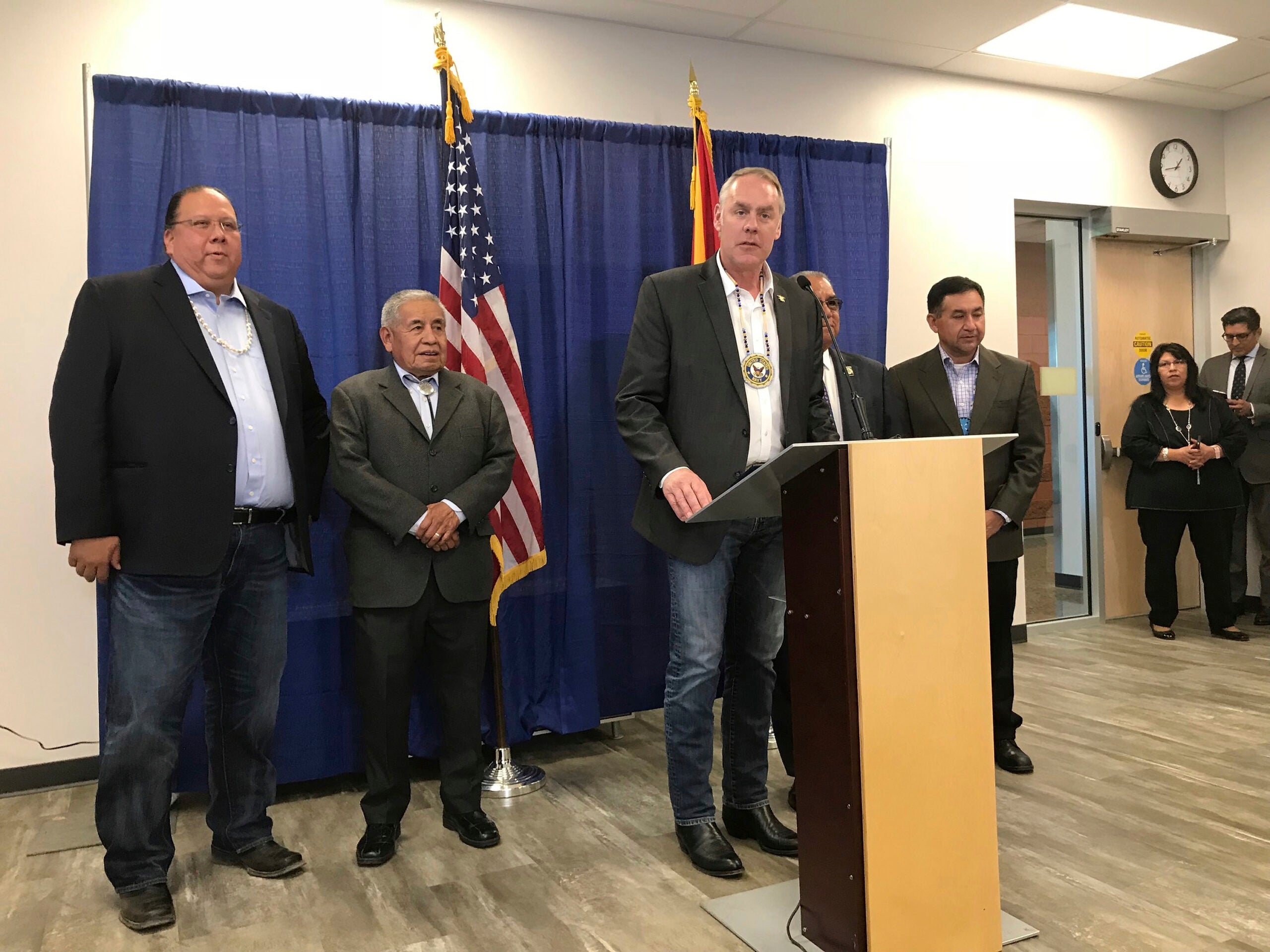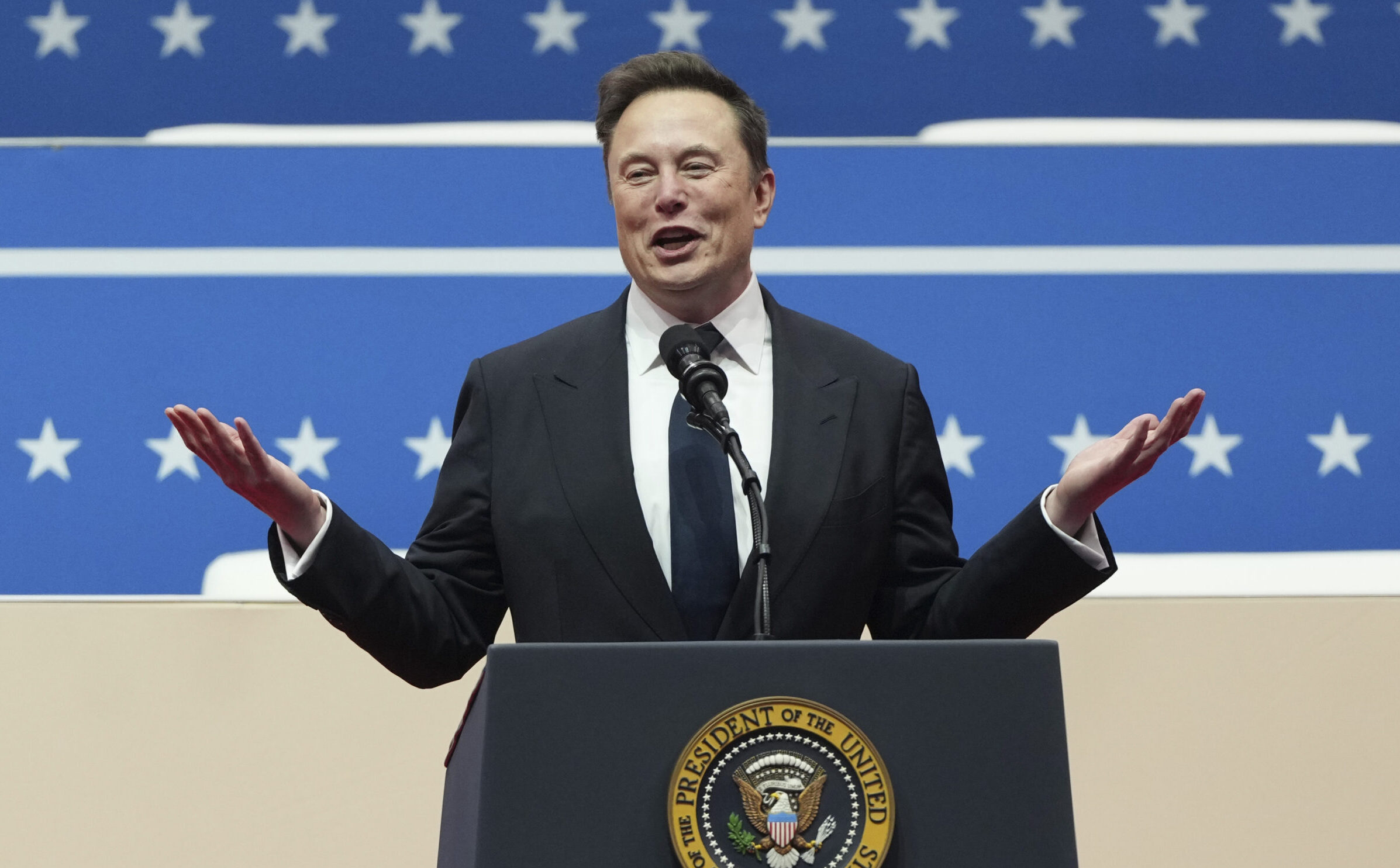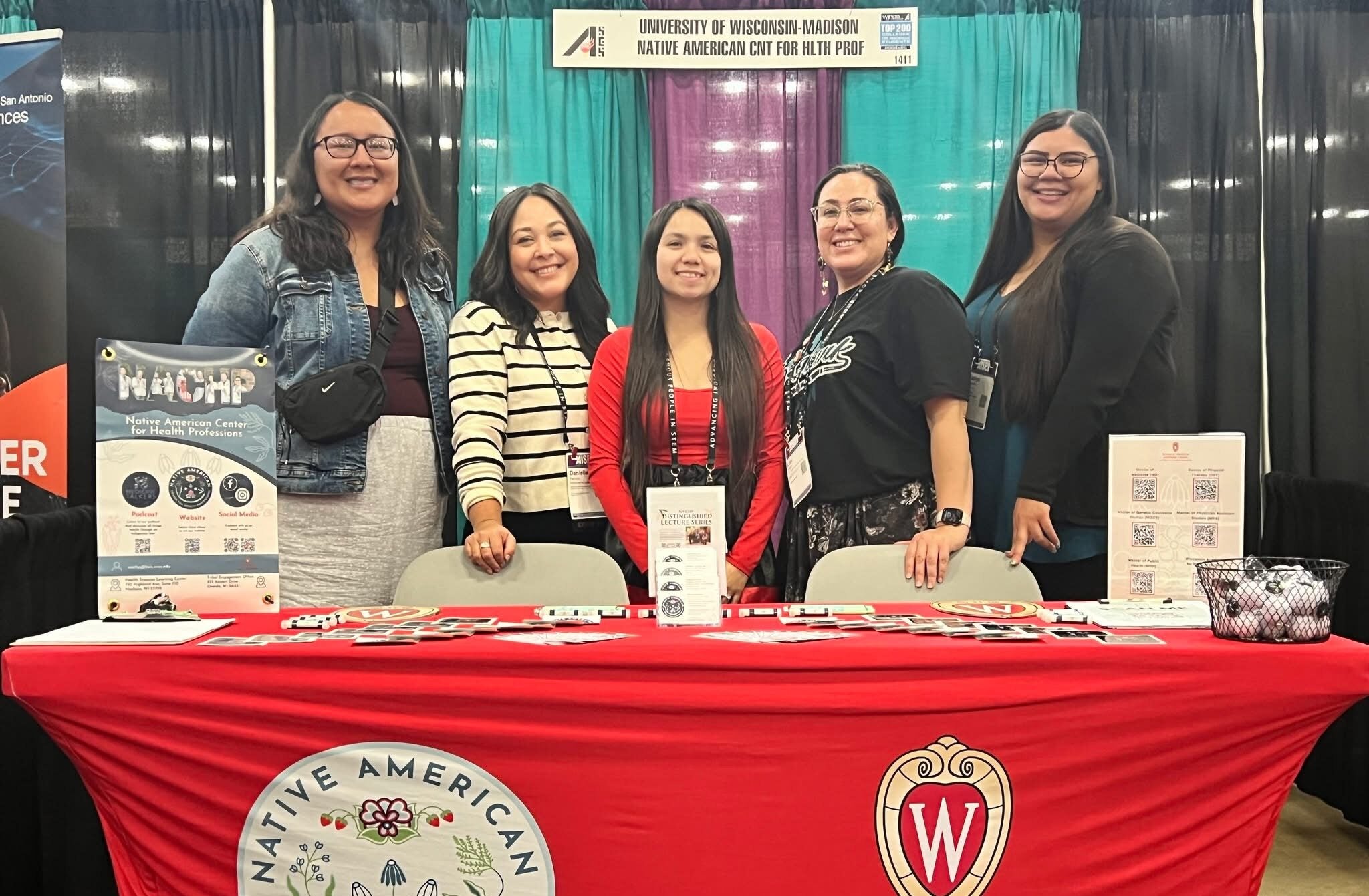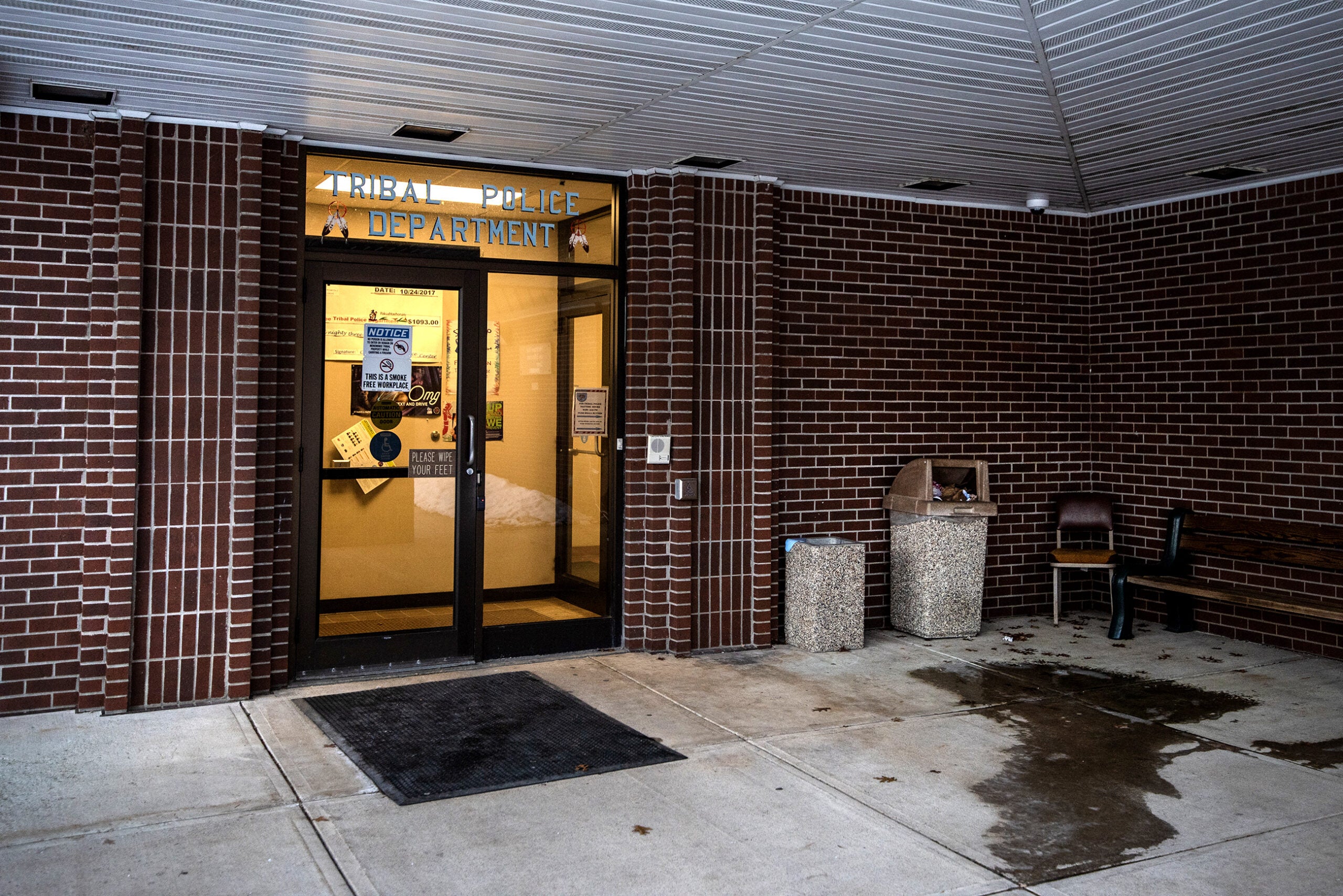U.S. Interior Secretary Ryan Zinke met with officials from the Oneida Nation of Wisconsin on Tuesday to discuss the effects of the opioid epidemic on Native Americans across the state.
Tehassi Hill, tribal chairman of the Oneida Nation, says while he appreciated the opportunity to meet with Zinke, the tribe may not agree with some of the aggressive measures being floated by President Donald Trump to curb the epidemic, including the suggestion that major drug dealers be given the death penalty.
Opioids are a class of drugs that includes some prescription painkillers and heroin. The Substance Abuse and Mental Health Services Administration estimates more than 2 million people in the United States are addicted to opioids. According to the Centers for Disease Control and Prevention, on average, 115 Americans die every day from an opioid overdose. And the Native American community is not immune to the epidemic.
Stay informed on the latest news
Sign up for WPR’s email newsletter.
According to a National Congress of American Indians report, data from 10 tribal nations in the Great Lakes region showed 31 percent of youth reported intentional misuse of prescription medication. The report also revealed that the rates of newborn opioid withdrawal syndrome in Wisconsin are the highest among other racial and ethnic groups studied.
On Monday, Trump announced a “get tough” proposal for battling opioid addiction that includes an ad campaign to discourage drug use, expanded treatment and a heavy focus on tough legal penalties.
In an NPR article, Trump was quoted saying:
“Whether you are a dealer or doctor or trafficker or a manufacturer, if you break the law and illegally peddle these deadly poisons, we will find you, we will arrest you, and we will hold you accountable,” Trump told an audience in Manchester, N.H.
“Failure is not an option,” he added. “Addiction is not our future.”
Tuesday morning, Zinke told news reporters in Horicon, Wisconsin that he thinks the Interior Department can help Native American tribal police fight the opioid epidemic.
“We have multiple bureaus with law enforcement, and what we’re doing is we are looking to combat opioids and drug addiction by targeting the dealers in conjunction with the nations and the tribes,” Zinke said.
After the meeting with Zinke, Tribal Chairman Hill told WPR the tribe is still reviewing Trump’s remarks, and hopes he got across to Zinke that the Oneida see opioid addiction as a mental health issue.
“That needs to be addressed with the proper counseling and medical care. A lot of times the dealers are actually users themselves,” Hill said. “So we can’t just throw the baby out with the bath water, especially when it comes to our Native American communities, because we have such small populations to begin with, that we place such a high priority on all our tribal members.”
Hill says the Oneida are hoping for continued consultation with the federal government, before any final plans are announced.
Wisconsin Public Radio, © Copyright 2025, Board of Regents of the University of Wisconsin System and Wisconsin Educational Communications Board.





